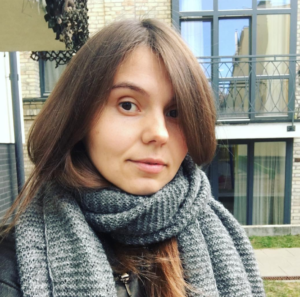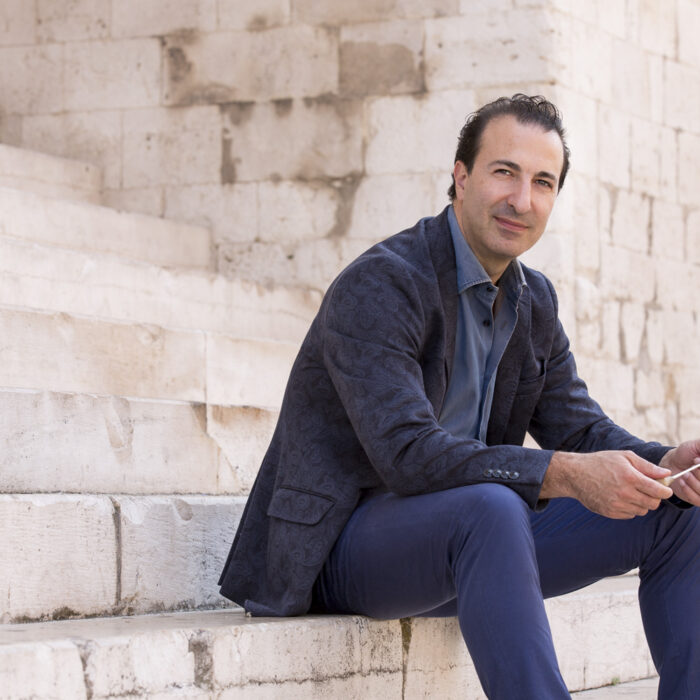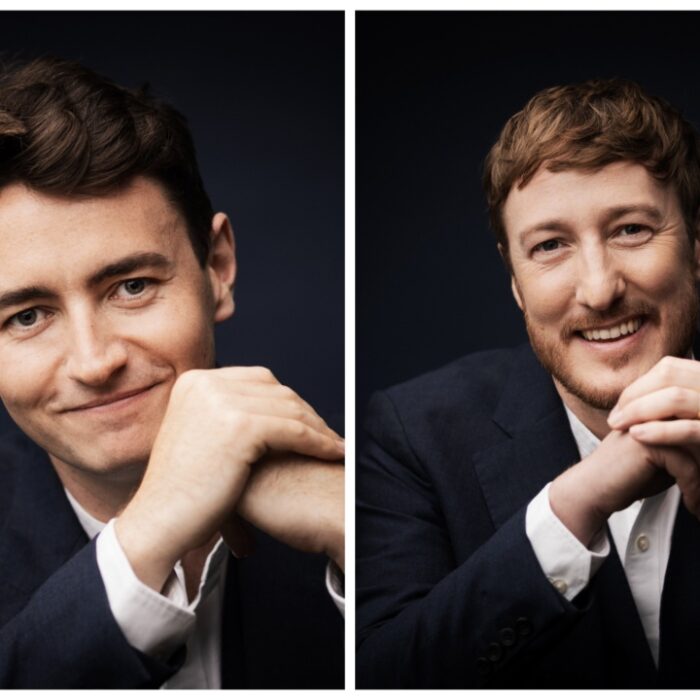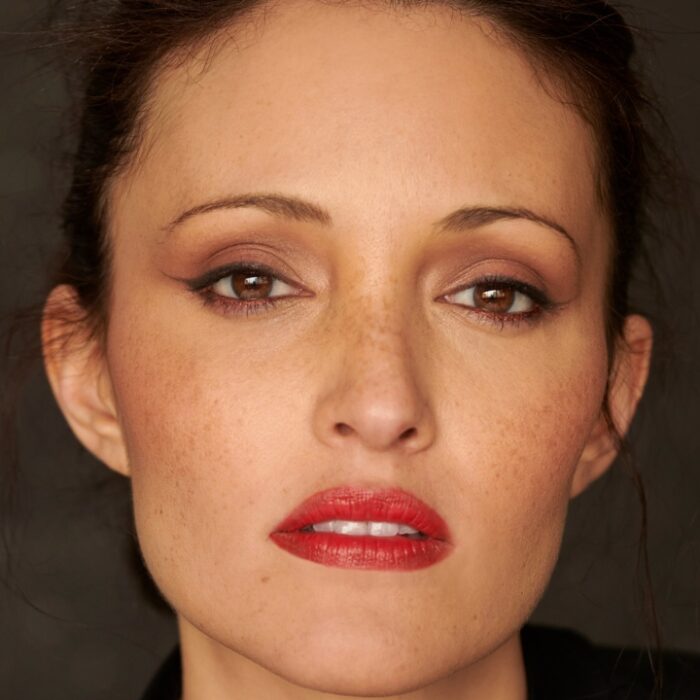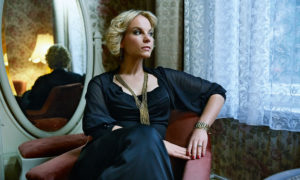
Q & A: Elīna Garanča on the Challenges COVID-19 Presents for the Opera World Faces
By Polina Lyapustina(Photo: Holger Hage for Deutsche Grammophon)
Before answering each question, Elīna Garanča sighed heavily. “It’s difficult,” she said.
I was angry at myself — some simple questions would probably improve the situation. And yet, we get what we get: one short call to discuss these tough times with a famous mezzo-soprano. And it was a difficult talk, indeed.
It seems that the pandemic has made us all equal in the face of what is happening. Stressed and scared, we stay at home, follow the news, and hope it will all end soon. But in the opera industry, what causes some serious inconvenience for some, kills others. And it’s hard to admit, but not everyone will survive this storm.
After eight months of the world pandemic, the opera industry, having its productions sprawled to blockbuster size, still cannot find a proper direction on how to support the whole system. What the audience wants, what artists need, what is safe healthwise, and businesswise are all different matters.
In an aggravated situation that seems to shatter all the hopes that had grown over the summer, Elīna Garanča — a top tier star who managed some travels, concerts, awards, and plans this year, seemed a perfect interlocutor for discussing the current situation.
OperaWire: Let’s start from a more personal scale and then go wider. How was this year in general, and what were the happiest, the most inspiring moments in your professional life?
Elīna Garanča: We cannot really compare what we have today to what it was or could have been. This year turned out rather different. But I was happy to return to the role of Marguerite in “La Damnation de Faust” at the Metropolitan Opera for the first time after many years. I always loved Berlioz and that was a great start of the year. I was also lucky to sing a few concerts with Berlin Philharmonic and the Mahler’s Third with maestro Lorenzo Viotti. And then, after a bright start, I was locked as everyone else.
Later on, I was extremely happy and pleased to back on stage with Wagner’s Wesendonck at the Salzburg Festival. I sang it for the first time with an orchestra — with Wiener Philharmoniker and maestro Christian Thielemann.
And of course, making Requiem in Florence and then in Milan, Bergamo, and Brescia — in the hotspot of Italy fighting the COVID-19. Singing this piece which I absolutely adore — one of the pieces I would take to the inhabited island — was very emotional.
And in the middle of all of that, I manage to make a recording of my first Lied recital of Schumann and Brahms songs.
I had to reduce the geography to Europe, lost two wonderful productions of “Don Carlo” in Munich and London, canceled my festival and Young singer project “Zukunfstimmen” in Austria, and the Japanese tour, and yet, I feel lucky to be able to work, to perform at least that much. The beauty, the artistic, and music highlights of every event were truly special.
OW: How did it feel to face closed borders and the inability to perform for the first time in years?
EG: I was growing up in Latvia, and being locked in my own country was normality back then. At the beginning of my career, going anywhere abroad was a problem. It required loads of paperwork and waiting, and denials. So I can only imagine the shock people who never had such an experience could feel.
But for me, it was a break, which I accepted. And for a moment, it brought some kind of relief for many artists like me, who constantly travel. I could finally dedicate time to the family. And I could finally reflect on what I’ve reached, what I’ve done, and why. And what is the purpose of my next steps. I’ve gone through all phases from euphoric relaxation of not singing, not memorizing, not making a suitcase, no waking up at 4 a.m. to catch the first flight, to complete depression, when you cannot leave the bed, facing the whole day of doing nothing.
I have two girls, ages six and nine, and homeschooling was a real challenge, but it helped to take my mind off the inability to perform. I still see myself as an artist young enough to not be stressed too much about the missing events, I believe sooner or later they will happen anyway.
It’s not the beginning nor the end of my career — the safest spot, I would say. It is sad indeed, that I cannot enjoy the blossom of my development to the full, but it teaches me that a certain silence for the artist can be very valuable. I revalued a lot about myself, and what I have to say, and what I want to say as an artist.
OW: How did you change your approach to planning or not planning the future schedule? How does this inconsistency affect musicians?
EG: I can plan what I want, but today we all depend on many people and their decisions — politicians, the health ministry, producers, and management of the theatres. I’m a freelancer, so I have to play the rules which are given. So many circumstances affect my job. I’m not a composer, who can sit and write in a room, nor a pop-star who can just record new songs and just send them worldwide. I’m a singer who performs already written music for people who would come and listen to it. And then, if this is not safe for people, if theatres decide it’s not profitable, or they are forced to stay closed — whatever I planned, I stay at home.
I have also surpassed the agony and excitement of thinking of what’s gonna happen and then it gets canceled, so now I literally live week by week, trying to follow the news day by day, and every time I see big changes. So I’m preparing, and I’m waiting.
Now I still learn my Lied program, and even if it will not happen in November, as it’s planned, they will be (and some of them already was) postponed to May 2021, when the situation will hopefully normalize, and I will be able to perform, so I will need all this repertoire anyway. And I learned Kundry, which I’m supposed to sing next spring in Vienna. Because it will be the first but not the only theatre where I will be singing this role. Some other new roles are on my list, and they all need time and attention, so I use this period to approach them step by step and study.
And when I feel optimistic and energized, I sing a lot. Another day, seeing the theatre being shut, the choir isolated due to new COVID cases, I just go out and work in my garden, sort out my children’s toys, or lay down looking into the ceiling and thinking about the world.
OW: The “Parsifal” premiere in Wiener Staatsoper is in your upcoming plans. What do you think about setting new productions in these times? Is it possible to open one with physical contact (between the director and the casts) being so restricted?
EG: To be honest, I have no idea. We’ve seen so many different approaches to working in this period. Rehearsals in masks, daily testing, waiting for the results to step on the stage on the day of the performance. And it’s all very important. But also, our director Kirill Serebrennikov will work remotely from Moscow (due to his house arrest). So he will BE present on a big screen via Zoom or Skype. In the nearest future, we’ll hopefully have a conference call with him, and we’re going to discuss all the details — how he sees Kundry, and how I see her, what message he would like to bring out in this production, and then step by step we’ll come to the rehearsal process.
For me now, the musical material is more important, it’s large and heavy and very particular, and it’s also my first opera by Wagner. And as you see, I don’t start small (laughing). And the expectations are big, both from the audience and from myself. I am very careful when choosing roles for my repertoire, so with the full understanding of the scope of this role, I’m now working a lot with my teacher and myself on that.
OW: What are expectations about the work with Kirill Serebrennikov and his modern theatre approach?
EG: I’ve been told that apparently, he’s rather shy, and I’m shy too. And then, this certain barrier of shyness needs to be broken. But I’m also told that some people feel intimidated by me for unknown reasons, so they approach me carefully. But what I need is just to understand exactly what the directors and conductors want me to do and why, and then I’m very liberated. I have no problem with modern productions. I’m happy to offer another reading instead of repeating the same vision over and over again. But, it has to make sense — firstly, for me — as an artist, I cannot transmit to the audience what I don’t understand myself.
And as I’ve been told, he watched my interviews and my performances, to take a closer look at my body language and acting, because for him as a theatre director, these moments will build the image of Kundry as well as my singing will do. But for now, I don’t have a full picture of this character yet. So I’m looking forward to working with the director on it, to melt our perspectives into something whole.
OW: Many singers are now protesting against the closure of the opera houses, saying that it should be open as long as let’s say public transport is functioning. That’s a popular opinion. Meanwhile, we should remember that the audience of the opera houses is at a higher risk (due to the age and duration of performances). What do you think about that?
EG: That’s very difficult. On one hand, people should have freedom of choice, and that’s a crucial question of being well-informed. It’s nearly half of a year of active preparation and performances out- and in-doors: guiding the audience, asking for the masks, distancing, controlling smaller rooms, and ventilation. More money and efforts must be invested in this. We now see that fewer people die from COVID-19, the medicine has advanced in the fight against the disease, and most of the people still don’t even notice when they are sick, and yet we apply these drastic measures for everyone.
But what would be a solution? I don’t know. Testing the audience, controlling better, reducing operas, inviting fewer people… But then this comparison comes to my mind too… If people come to the opera by public transport, what can happen in the opera house in three hours, can happen on a bus in 15 minutes. With good ventilation and high ceilings and a slight distance, we can guarantee more safety than in public transport.
We are acting and reacting to what’s happening now but the price for that will be paid in the next 10 to 15 years. Especially for those from whom the possibility of working was taken away. It’s incredibly frustrating to see that when politicians need to make an impressive festivity, celebration, international presentation, there is always classical music and artists that they desire to show off. “Look! How cultural we all are!”. And we – artists — sing and dance and play! But now, the same artists are kicked in the butt like annoying clowns, sort of “Rigoletto’s culture is not essential for survival.” Maybe not for physical body survival, yes, but humans are more than bodies – we have a soul, a spirit. I feel they fight for a short term gain now. And it makes me incredibly angry and sad at the same time.
OW: Not that many theatres are open now, and we can see all the big stars on stage. Meanwhile, other artists and freelancers are left with no support. If eventually, the number of professionals in the industry decreases, how will it affect the industry?
EG: I’m not sure I can give a perfect answer, because I am in a privileged situation. I’m successful, and even being a freelancer, I’m the one who works, though not that much as I used to. But it’s difficult to imagine how it feels being deprived of working at all, but I know it happens to many people in the art industries now. As an observer, I expect that many people won’t be able to come back to work once it’s over.
Another question is do we really need to do all the things we’ve been doing before? This question includes me as well. Do I really need 65 performances a year? Maybe 45 would be enough? We always want more and more! The same for the theatres. Twelve new productions? Maybe 10 would be enough? And do we really need all those premieres? What we have now — productions fail and in one or two seasons they want another one. I understand there are more working places on those new productions, but not just it. Let’s think about the quality — certain quality needs a certain time and certain money. And now we will be reduced in it, so maybe we need to find another way? The industry became really heavy and I don’t believe it will move forward like that.
But at the same time, if theatres sell out the halls, if there’s a huge demand for culture, that opens the possibility for development, that means that the society needs it, that there’s a necessity for it. A public request and desire to go to the theatre and forget their daily routine for a few hours is essential. And we are ready and always willing to provide those few hours of magic.
Maybe it’s time for theatres to think about long-term investments. When you appreciate the talent and support its growth. This applies to both performances and singers. With proper support, it gives an impressive result, as well as this long term contribution will give back way more than short sparkles that come and go and nobody remembers about it .
Music academies around the world face this problem too. They got used to accepting people who sometimes do not have the talent and personal qualities to become a superstar. Surely the industry needs many people, not only stars, yet, we teach too many of them, giving them promises that cannot be kept. And it’s cruel. So I believe the current situation will force us to invest time and money in the development of talents, not masses, and revalue what impact culture has on modern society.
OW: What would you advise young singers today?
EG: First of all, they are really young — and the younger you are, the more time you have to reach all your goals. So, please, no despair. The only thing I can advise is to keep growing as an artist, improve your technique, listen to the recordings, read more books about musical styles, how you could approach one role or another, you’ll need it soon on stage. And the young singer surely needs a stage to gain experience.
But for the preparation, you need even more time. The time, which once you’re on stage, you don’t have anymore. Technical problems are still the weakest point of the young generation and now is a perfect time to solve them. And when the time will come to sing — and it will certainly come maybe in six months, maybe in a year — you’ll see what you’ve managed to gain using this time.
Categories
Interviews